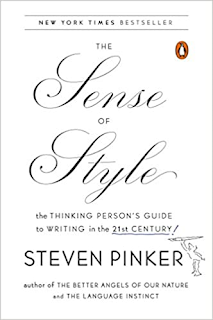 |
| Irish stereotypes cartoons and comics - funny pictures from CartoonStock.com |
.
"Finnegan's Awake"
A modern Irish poem by Seven
 |
| Irish humor or craic (ar.pinterest.com) |
I will pray you a poem.
In Irish but in English.
Yet you won't understand because
You don't sing your language.
Hypodermic" or pneumatic,
Get under my skin with your fix!
To a drop of the craythur I was born,
To a tuber's fine tincture
I was turned on,
A poteen, a poitín [\pot-cheen\],
All mellow and brown.
Around a cadaver a sway and a sip,
Shillelagh shake; shellac shenanigans;
Sheet and shout and shoot sharp shingles to shush 'em;
Unsheathe and shear and bathe sheep in springs;
Like the Gilg and the Manx on the Isle of Man:
"Die Ivory Isle, uber mensch Damen,"Cried Mary, their little lamb.
Gil or Gilly, he's a Gilligan;
He's a handful, I tell it's true, Liam.
Finn' Ph'n, friend us again!
[DIALOGUE]
Then shimmy-toss my own two cents!
Shake the spirit and rouse the breath.
Come, Finnegan, become again!
 |
| Mara's three daughters (Lust, Discontent, and Delight) interrupt Sid's meditative absorption. |
.
like fiendish daughters of The F'end
To pull thee from thy 'sorption then
Corked and screwed and waxed wick-end
I say, I sing, I say again:
Come, Finnegan, become again!
Wan wolves who wander for crimson drink
Hale men who haggle at Haddock hint
Then writhe and wretch to get a stint
 |
| [Poetic inspiration plus the Bard] |
A Shropshire Lad, a filly wink
Bard of Avon, cauldron ingredient
A skinny finny to feed the fink.
Come, Finnegan, become again!
Ne plus ultra, Naiad and Nymph,
Dryad, Damsel of Dark Forest, minx
Meadow maiden of mirth and myth,
Come, Finnegan, become again!
Millicent, Gilligan, Moira, and Maw
The crow ascends till it empties it craw.
Descend, Finnegan, descend!
The winged agree, The awed are odd.
Descend, Finnegan, descend!
With a mane to wick the dew Or switch,
The Messenger, came through in Gaelic:
"Thy Iv'ry Isle, uber-dames, damn it..."
So, come, Finnegan, become again again!
And so on and so forth.
"Finnegan's Wake" (The Clancy Brothers)






